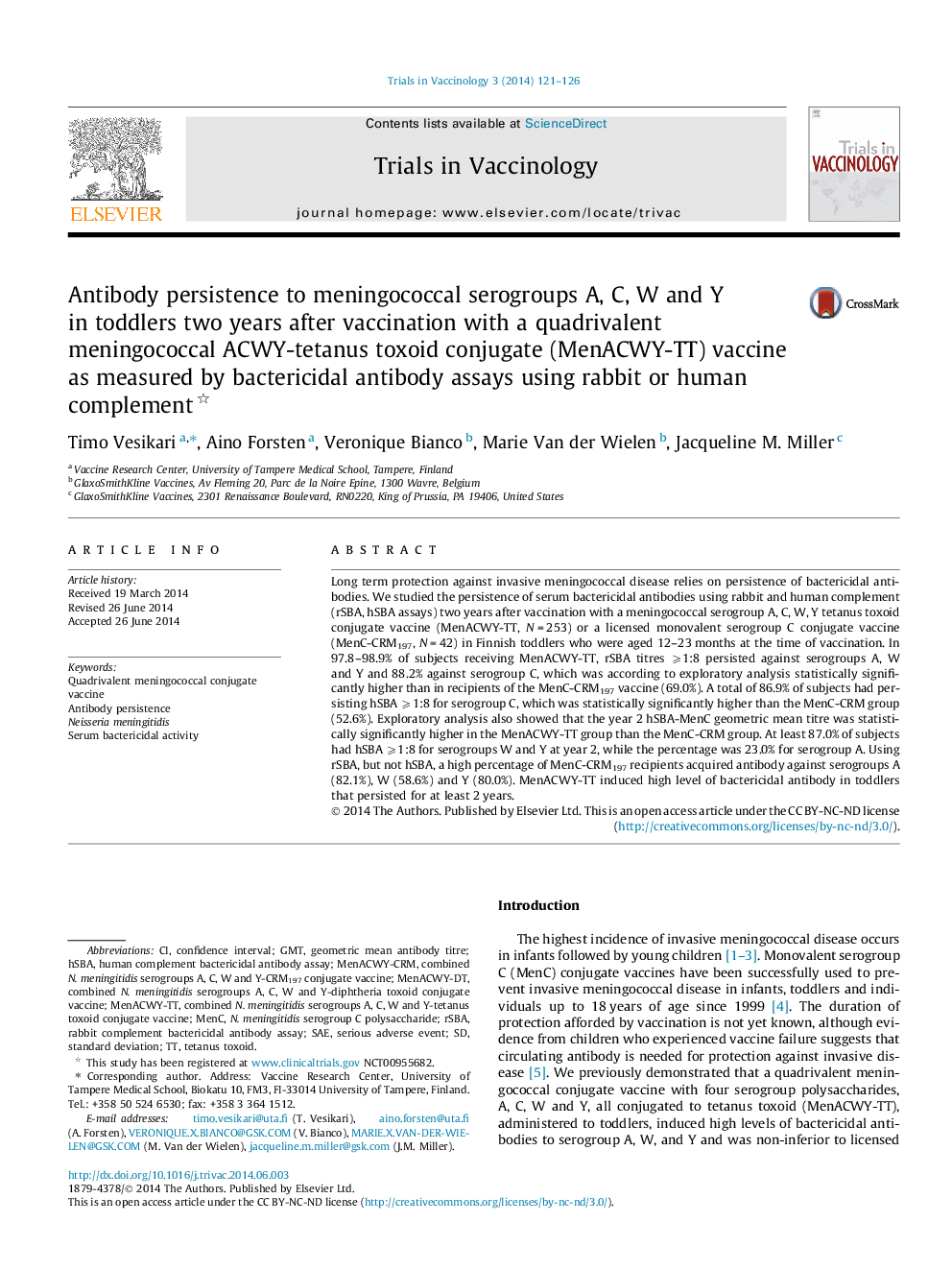| Article ID | Journal | Published Year | Pages | File Type |
|---|---|---|---|---|
| 2474416 | Trials in Vaccinology | 2014 | 6 Pages |
Long term protection against invasive meningococcal disease relies on persistence of bactericidal antibodies. We studied the persistence of serum bactericidal antibodies using rabbit and human complement (rSBA, hSBA assays) two years after vaccination with a meningococcal serogroup A, C, W, Y tetanus toxoid conjugate vaccine (MenACWY-TT, N = 253) or a licensed monovalent serogroup C conjugate vaccine (MenC-CRM197, N = 42) in Finnish toddlers who were aged 12–23 months at the time of vaccination. In 97.8–98.9% of subjects receiving MenACWY-TT, rSBA titres ⩾1:8 persisted against serogroups A, W and Y and 88.2% against serogroup C, which was according to exploratory analysis statistically significantly higher than in recipients of the MenC-CRM197 vaccine (69.0%). A total of 86.9% of subjects had persisting hSBA ⩾1:8 for serogroup C, which was statistically significantly higher than the MenC-CRM group (52.6%). Exploratory analysis also showed that the year 2 hSBA-MenC geometric mean titre was statistically significantly higher in the MenACWY-TT group than the MenC-CRM group. At least 87.0% of subjects had hSBA ⩾1:8 for serogroups W and Y at year 2, while the percentage was 23.0% for serogroup A. Using rSBA, but not hSBA, a high percentage of MenC-CRM197 recipients acquired antibody against serogroups A (82.1%), W (58.6%) and Y (80.0%). MenACWY-TT induced high level of bactericidal antibody in toddlers that persisted for at least 2 years.
